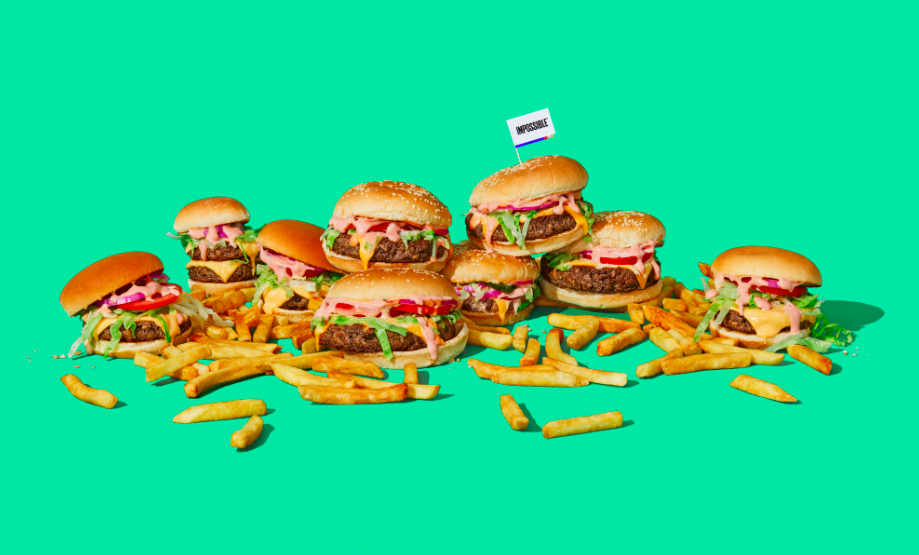
As our technology steadily advances, we find more problems with the state of our environment and the impact we've had on our planet. Luckily, technology also gives us the means to make a course correction and try to reverse the damage already done. The mere idea of this feat is incredible, but we'll get nowhere if the general populace and large corporations don't work together to see things through.
One option that's starting to become a bigger and bigger trend is meat alternatives in our diets. Veganism has been known as a healthy alternative but cutting meat out of a diet completely isn't for everyone, whether it comes down to personal preference or a health-related situation. Now, the trend has grown due to recent technological breakthroughs allowing us to use plant-based meat substitutes that taste the same as (or sometimes better than) the real thing.
The main thrust of the argument is that these dietary options are better for the environment. "Going meatless" may indeed help reduce some of the pollution and environmental damage brought by keeping and slaughtering animals for meat. However, a deeper look reveals many of these alternative products take an environmental toll of their own – and their health benefits may not be what they seem.
What is the meatless revolution?
As we look closer at the impact we have on our planet, we search for ways to minimize the damage. Meat production is a major contributor to the world's carbon emissions and pollution, not to mention the reports of animal cruelty or proof that more land is being used to raise food for our livestock than for human consumption. Then, we come to personal health risks that one may face from eating too much meat and not enough other food products.
None of this is to say that eating meat is a bad thing, because it's not. Plenty of studies assert that humans need the substances that meat provides. However, overconsumption of meat has taken a negative turn for everyone as a whole. While vegetarian and vegan options are there, trying to convince a large number of people to suddenly switch their diets is just not feasible. That's why plant-based meats are earning so much attention.
Two companies have already started sweeping the market on plant-based meats. The first, Impossible Foods, has developed fake meats that provide the same taste and texture as the real deal. The other company, Beyond Meat, focuses on putting plant-based chicken strips and other products in grocery stores like Whole Foods – and is on the menu at fast food cult favorite Del Taco. This trend is gaining traction, but we need to know if it's better.
Are meat alternatives causing more pollution?
Water and energy are still necessary for creating these plant-based meats, so there's pollution being created even with the alternative. However, the differences between plant-based options and traditional meat options are compelling.
The Center for Sustainable Systems at the University of Michigan took a look at Beyond Meat's Beyond Burger, which contains a quarter-pound of plant-based meat. They then compared this burger's entire geological footprint to a normal quarter-pound beef burger. The Center found that the Beyond Burger produced 90 percent fewer greenhouse gasses, needed 46 percent less energy to create, used 99 percent less water and used 93 percent less land than the traditional alternative.
As of 2017, there were more than 17 billion heads of livestock in the world, or triple the human population. The Water Education Foundation reported that it takes 2,464 gallons of water to produce one pound of beef in California. In 2000, the U.S. Geological Survey reported that 40 percent of the country's freshwater went to irrigating crops used solely to feed livestock. Even our topsoil is eroding faster than we can replace it — at about 7 billion tons per year — due to the kinds of crops that only livestock can consume.
This all sounds like good news, but the data-collecting mission is far from over. Many more independent studies are required before we can make sweeping judgments about the chances of reversing climate change by transitioning to meatless meat, according to Ricardo San Martin, a research director at the University of California at Berkeley. Similarly, Michael Siegrist, a professor at ETH Zurich, says the crux of the problem is the demand for meat in the first place rather than the form that meat takes.
Siegrist also pointed out there's not enough data on consumer buying patterns to determine whether plant-based alternatives are replacing animal flesh in consumers' diets or merely complementing it. It's possible these companies are compounding the known problems rather than reducing them.
In short, while meatless meats may not contain animal products, they still require a huge industrial footprint for growing, processing, packaging and distributing them. Not enough information is available on the speed of this transition, and manufacturers haven't taken meaningful strides to curb consumers' demand for meat products in the first place. Anything less is a "solution" that benefits meat — or meatless — companies first and the planet second.
Is the planet benefiting from going meatless, or only big companies?
The meatless revolution may or may not be a cynical ploy from major food companies to make more money off of trends. Still, it's helping raise awareness of animal agriculture's untenable ecological and climate footprint. Companies like Impossible Foods pioneered these meatless alternatives ostensibly to help the planet and our health. However, there's little doubt the industry benefits when consumers believe the burden of change rests on their own shoulders.
Individual consumers can make changes — and even an impact. However, making consequential changes to how big industries operate as a whole can stave off environmental collapse — only 100 companies emit more than 70 percent of global greenhouse gases. The product itself doesn't matter if the apparatus supporting it requires sweeping, structural reforms.
Tyson, Smithfield, Perdue, Hormel, Nestlé and other major food companies have started marketing meat alternatives to get in on these latest trends. Popular items include plant-based burgers, meatballs and chicken nuggets. The growing demand for alternatives isn't going unnoticed, and this sort of reaction means that a voice, at the very least, being heard somewhere. If the trend continues, big meat companies could turn their attention more to alternatives than traditional means, which will lead to less pollution on a gigantic scale.
While meat is still a healthy part of most diets, overconsumption on a global scale has caused a lot of problems. Buying more vegetables, fruits and grains and a little less meat can tell big companies to start switching to other, more profitable options. It would be foolish to expect the animal agriculture industry to help reduce demand for its own products, however.
The benefits of plant-based meat have implications in combating hunger around the world and helping out the environment at a critical hour. While we have the means to help our planet, our approach must be more nuanced than "eat this, not that."
Image credit: Impossible Foods

Jenna Tsui is a technology journalist who covers the latest news in technology, disruptive tech, and environmental science. You can read more of her work at The Byte Beat.














